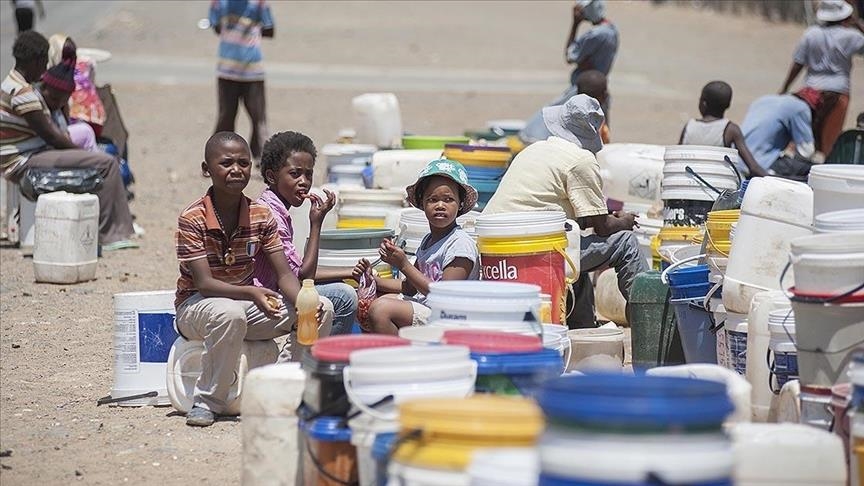
ANKARA
Swift population growth and climate change continue to aggravate the water crisis in Africa.
Currently, 350 million people of the continent's 1.3 billion population do not have access to clean water, and it is feared that this figure will only increase if sufficient investment is not made.
The population of 560 million which is living in urban areas in Africa in 2015 is estimated to increase to 1.1 billion by 2050.
It is forecasted that the increasing population will worsen the water problem if the infrastructure facilities in the cities are not developed.
In African cities where there are frequent floods in addition to drought, the main solution that has been proposed for this problem is to improve the infrastructure.
African countries, which need to spend billions of dollars on building canals and dams, cannot recycle used water due to a lack of infrastructure, unlike the rest of the world.
In African countries, which suffer from drought and thirst despite their abundance of resources, there is a risk that hundreds of thousands of people will leave their homes because of thirst, as is the case in East Africa if sufficient investments are not materialized.
Egypt, Botswana and Gabon lead the countries with water security in the continent.
While countries such as Egypt, Botswana, Gabon, Mauritius, Tunisia and South Africa rank at the top of the water security index, Egypt was the only country to reach a score of 70 out of 100.
In the index, where different topics such as water infrastructure, efficient use of water, and wastewater management are evaluated in addition to access to water, it has been noted that 29% of the continent's population, approximately 353 million people, do not have access to basic drinking water services.
Eritrea, Sudan, Guinea-Bissau, Somalia, Chad and Niger were the lowest-ranked countries in the index.
Groundwater can meet the 5-year need
Another proposed solution to meet the need for water is groundwater, which is widely used in rural areas through wells.
In their latest research, WaterAid and the British Geological Survey (BGS) stated that groundwater can meet the clean water needs of many African countries for at least five years.
"Our findings debunk the myth that Africa is running out of water. It is a tragedy, however, that millions of people on the continent still do not have clean drinking water," said Tim Wainwright, President of WaterAid.
Increased risk of disease
Lack of access to clean water poses the biggest threat to health. About 115 people die every hour on the continent from diseases caused by hygiene, inadequate sanitation and polluted water.
Leaving the wastewater from mines and industrial areas to nature without treatment leads to the pollution of clean water and the spread of diseases.
It is stated that only 16% of wastewater in Africa goes through the treatment process.
Worst drought since the 1980s.
The most severe drought wave in eastern Africa since the 1980s has condemned nearly 13 million people to severe starvation.
The UN announced that the driest period of the last 40 years was recently experienced in the region, livestock has started to die, and families have left their homes due to thirst and food problems.
The lack of water triggered the spread of epidemics along with migration.

* Written by Ahmet Gencturk
Anadolu Agency website contains only a portion of the news stories offered to subscribers in the AA News Broadcasting System (HAS), and in summarized form. Please contact us for subscription options.







